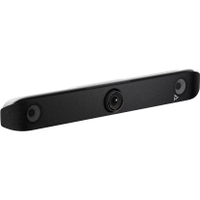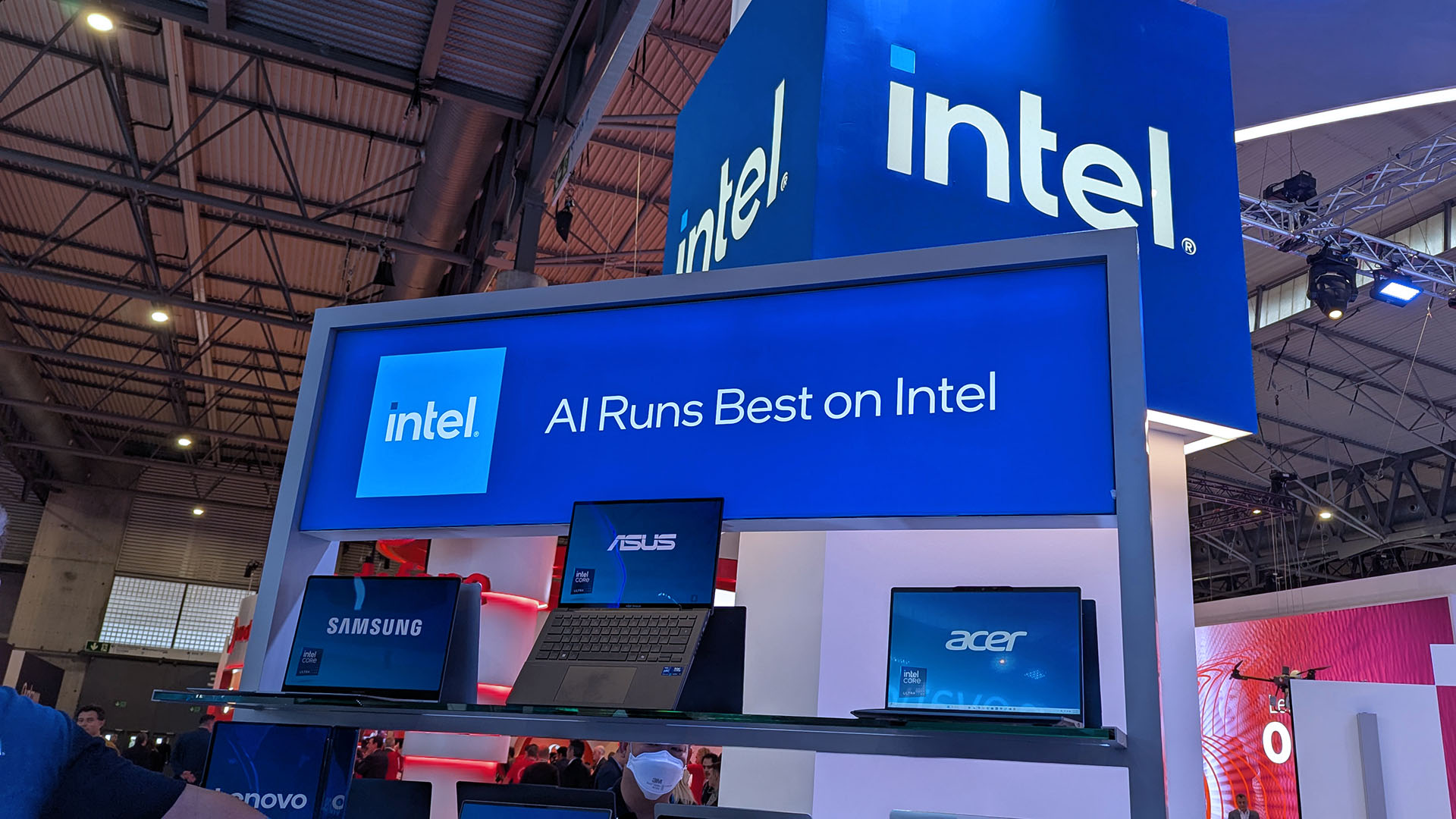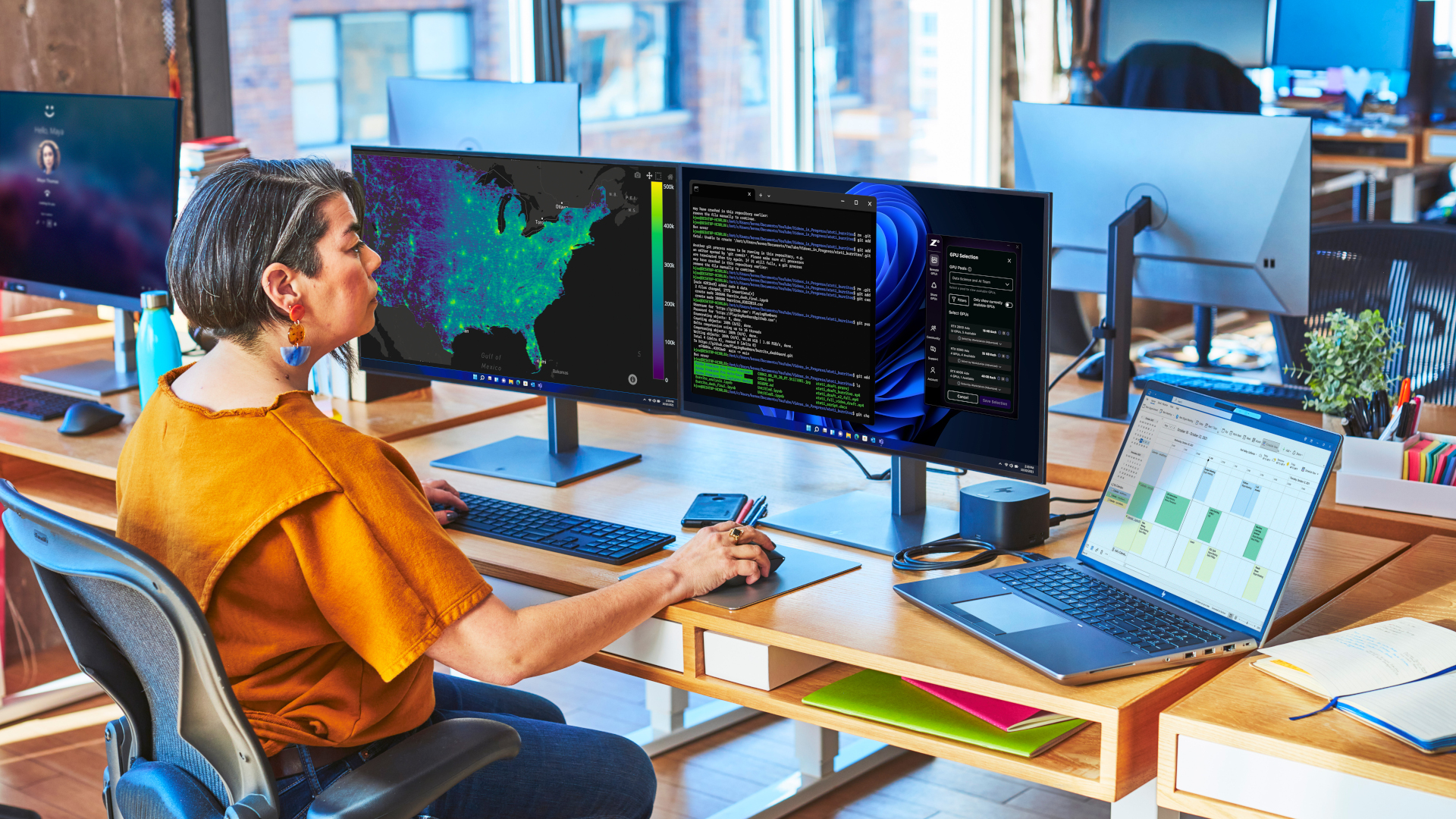
What you need to know
- HP announced Z by HP Boost, a new collaboration tool that allows AI workstations to share GPU power on demand.
- Z by HP Boost is part of HP's AI Creation Center, already including Z by HP Data Science Stack Manager, Z by HP AI Studio, and Z by HP Gen AI Lab.
- HP also revealed the updated Poly VideoOS 4.4 software, adding new tools for conference meetings and calls.
- Poly VideoOS 4.4 will work with HP's new Poly Studio video bars designed for office meeting rooms.
- Z by HP Boost is expected in early 2025, and Poly VideoOS 4.4 should launch in November 2024.
HP is hosting its Imagine 2024 event this week, showing off some new AI PCs — including its high-end Spectre replacement — and new Series 5 Pro monitors. We're looking forward to testing the new hardware, but HP didn't just announce new devices.
Imagine 2024 has been all about AI, so it's no surprise that some of HP's most popular professional collaboration and development software is getting an upgrade in the same style.
Z by HP Boost is the most notable announcement, especially for professional teams that feel like there's never enough GPU power to go around for AI development. It's expected to significantly change the way you work remotely on HP's AI workstations.
In the same vein, updated Poly VideoOS software to complement new Poly Studio video bars should enhance remote collaboration with teammates who are borrowing GPU power as they work from a cafe.
Here's what you need to know about these new features and hardware headed our way in 2024 and 2025.
Z by HP Boost delivers extra GPU power anywhere you go
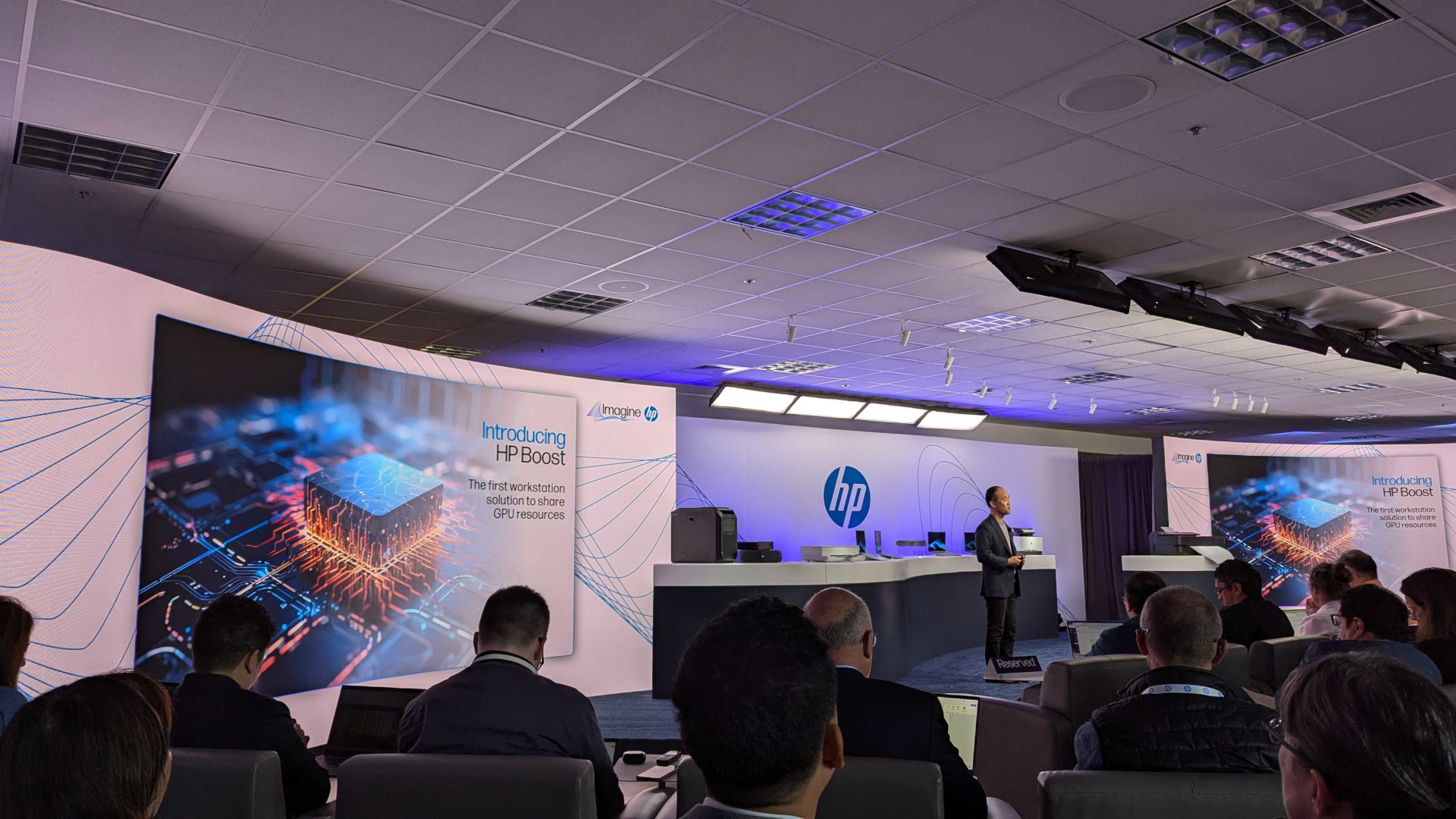
HP's AI Creation Center was unveiled in March 2024 as a new software suite for AI PCs involved in AI development. Until today, it included Z by HP Data Science Stack Manager, Z by HP AI Studio, and Z by HP Gen AI Lab, but that changes with the announcement of Z by HP Boost.
An understatement: AI has been a hot topic this year. I've never seen such an initiative by big tech companies to include AI in new tech, and it's ultimately resulted in huge growth in the arena of AI development.
Get the Windows Central Newsletter
All the latest news, reviews, and guides for Windows and Xbox diehards.
The emerging field doesn't come without a cost — just look at the fact that GPT-4 requires up to the equivalent of three bottles of water to generate 100 words — and developers seem to always need more power for AI computing. That's ultimately the problem that HP set out to solve with Z by HP Boost.
HP says that Z by HP Boost is an "industry-first solution that revolutionizes GPU sharing across HP AI workstations" and that it "enables secure, scalable, and on-demand performance boosts — putting idle GPUs to work in ways no one else can."
It essentially works by creating a network of HP's workstations, mobile or desktop, sharing available GPU resources for intensive AI tasks. It works on-demand, and it operates remotely to keep professionals from being tied down to a desk. I'm not in the AI development field, but it's clear to see how this will benefit a ton of users currently using HP's workstations.
I can also see it being a boon for enterprises where you have a large group of individuals with workstations. Those who need extra GPU power will be able to pull it from idle systems, essentially creating a personal cloud and thus reducing the need for third-party cloud AI computing.
Z by HP Boost isn't expected to launch until "early 2025," and even then it will only be available to US and UK customers. There's still no mention of pricing, and it's unclear whether regional availability will expand after the launch.
🎃The best early Black Friday deals🦃
- 🕹️Xbox Game Pass Ultimate (3-months) | $29.99 at CDKeys (Save $20!)
- 💻Samsung Galaxy Book4 Edge (X Elite) | $899.99 at Best Buy (Save $450!)
- 🎮Razer Wolverine V2 Chroma (Xbox & PC) | $99.99 at Amazon (Save $50!)
- 💻Dell Inspiron 16 2-in-1 (Core Ultra 5) | $749.99 at Best Buy (Save $400!)
- 🕹️Starfield Premium Upgrade (Xbox & PC) | $28.09 at CDKeys (Save $7!)
- 💻ASUS Vivobook S 15 (X Elite) | $879 at Amazon (Save $420!)
- 🕹️Final Fantasy XVI (PC, Steam) | $44.29 at CDKeys (Save $6!)
- 💻Lenovo ThinkPad X1 Carbon | $1,481.48 at Lenovo (Save $1,368!)
- 🎮 Seagate Xbox Series X|S Card (2TB) | $249.99 at Best Buy (Save $110!)
- 🕹️Hi-Fi RUSH (PC, Steam) | $8.59 at CDKeys (Save $21!)
- 💻HP Victus 15.6 (RTX 4050) | $599 at Walmart (Save $380!)
- 🫙Seagate HDD Starfield Edition (2TB) | $79.99 at Best Buy (Save $30!)
- 🖱️Razer Basilisk V3 Wired Mouse | $44.99 at Best Buy (Save $25!)
- 🕹️Days Gone (PC, Steam) | $10.39 at CDKeys (Save $39!)
- 🖥️Lenovo ThinkStation P3 (Core i5 vPro) | $879.00 at Lenovo (Save $880!)
HP enhances conference rooms with new AI features in Poly software
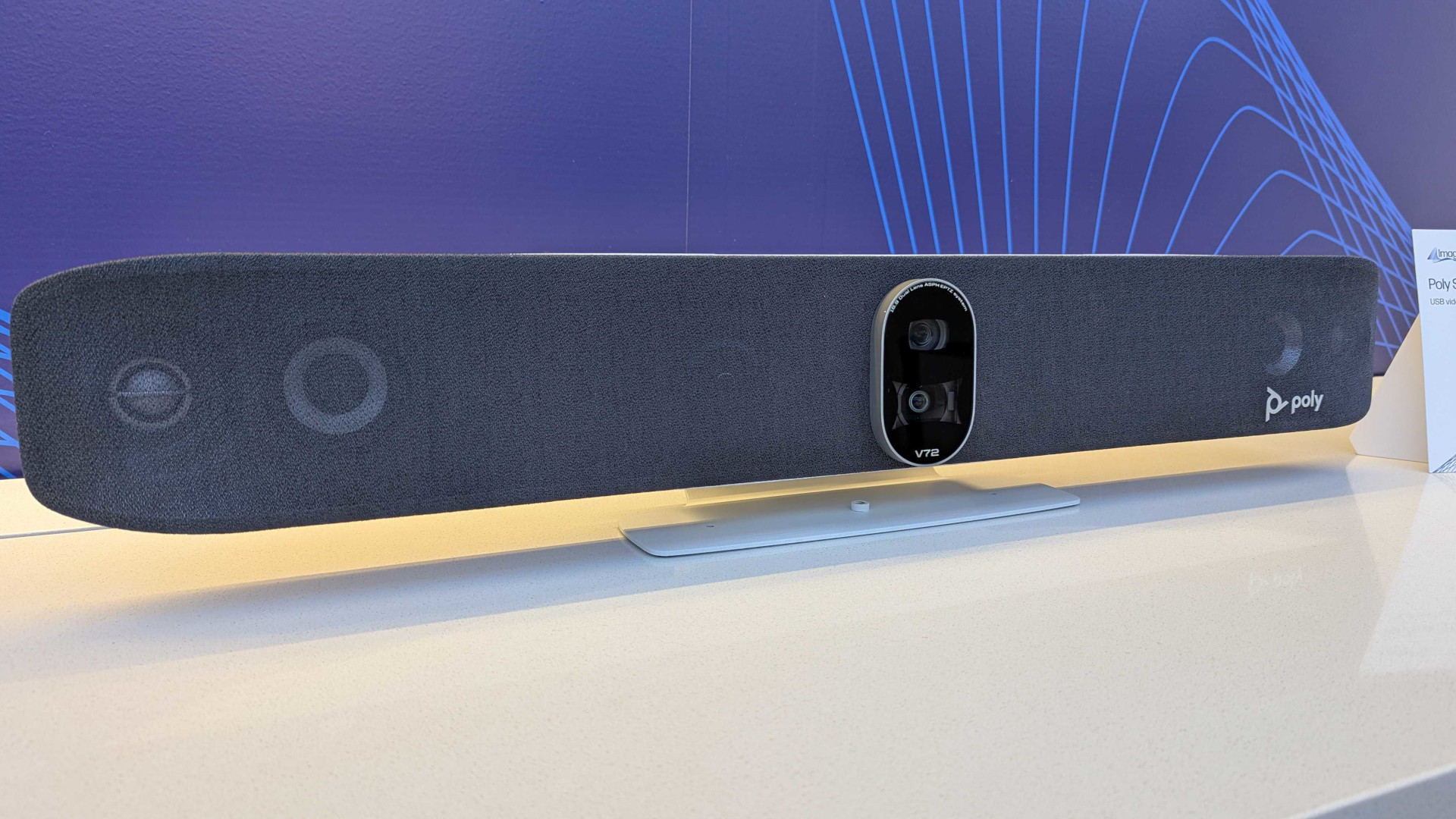
While Z by HP Boost solves the problem of not having enough GPU power while working remotely, HP's new AI integrations for Poly VideoOS and feature updates to the Poly Lens management platform should make it a lot easier for teams to keep in touch.
Poly VideoOS is designed to work with multi-cam video conferencing hardware, including HP's Poly Studio video bars. Rather than a single-user webcam, the video bars sit at the front of a room and deliver AI-enhanced camera feeds and output audio for the whole room. HP announced new Poly Studio X32 and V32 models for small rooms, as well as Poly Studio X72 and V2 models for large rooms. They complement the X52 and V52 video bars already on the market.
HP Poly Studio X52 Video Bar | $4,059 at HP
HP's Poly Studio X52 is designed to be the centerpiece of your video conferencing setup, and it's only getting better with the upcoming launch of Poly VideoOS 4.4.
This is the first time I'm really exploring what PolyVideoOS can do with HP's Poly Studio video bars, but its new version 4.4 update seems to bring some key ingredients. Standouts include NoiseBlockAI v2 which intelligently removes background noise; DirectorAI Perimeter: Live Setup makes adjusting the camera focus and perimeter extra easy. Poly Labs is another new add-on that will offer experimental AI features before they're fully released.
It's not exactly an exciting announcement for the average user, including myself, but anyone who often runs video conferences likely perked up at the idea of some extra tools to make meetings easier.
Poly VideoOS 4.4 and Poly Labs are expected to launch in November 2024. The Poly Studio X72 video bar is available now for about $7,000 at HP, with the rest of the new video bar hardware launching in late-2024 and early-2025.

Cale Hunt brings to Windows Central more than eight years of experience writing about laptops, PCs, accessories, games, and beyond. If it runs Windows or in some way complements the hardware, there’s a good chance he knows about it, has written about it, or is already busy testing it.
